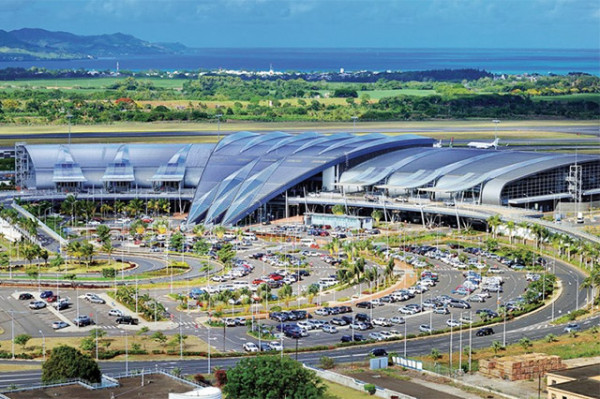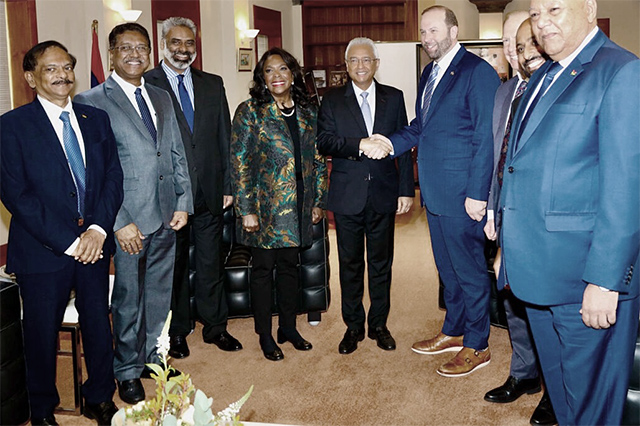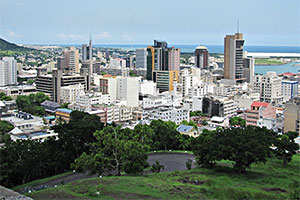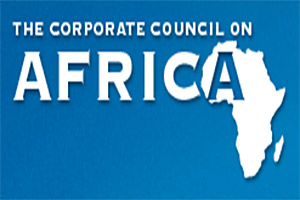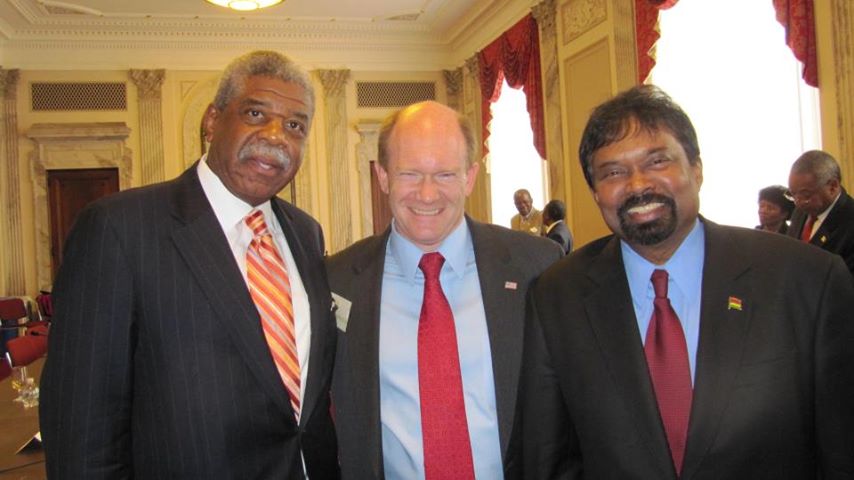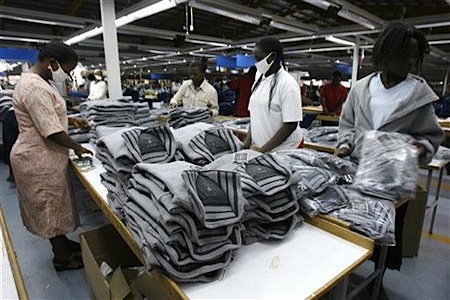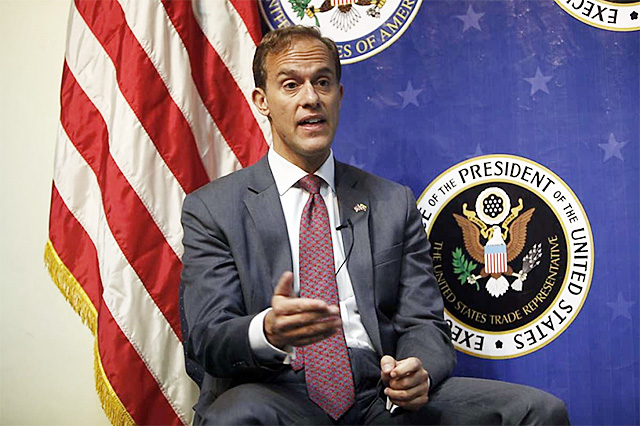Mauritius drives to diversify as manufacturing stalls
Much of island’s economic success was built on textiles but rising labour costs underline need for high-tech products.
Next to the motorway, heading north from Mauritius’ international airport, is a row of boxy apartment blocks festooned with washing hung out to dry.
These are the cramped dormitories of thousands of foreign textile workers, the majority from Bangladesh. The hostels, which also house workers from Madagascar and Nepal, illustrate a dilemma for Mauritius. As the economy has grown more successful, wages have risen sharply, forcing manufacturers — at least those in labour-intensive industries — to either relocate abroad or import cheap labour.
At its peak in 2000, manufacturing made up more than 21 per cent of the island’s GDP. That proportion has since halved to 10.7 per cent, according to the World Bank. That is partly because other industries — notably financial services — have expanded, producing what economists consider a beneficial diversification of the economy.
But it also reflects what some say is the manufacturing sector’s inability to move sufficiently quickly up the value chain. “When you look at other countries like Singapore, Malaysia and Thailand, they also started with textiles but they moved upmarket into higher-value addition and a more diversified range of products including electronics,” says Vinaye Ancharaz, an economic consultant and expert in manufacturing.
Somehow, he says, Mauritius never quite made that leap. These days many textile manufacturers can only survive in Mauritius by employing lower-wage workers from abroad.
Others have decamped to Madagascar. Minimum wage legislation has pushed up local pay: unemployment, partly a result of a mismatch of skills, has jumped from 6.7 per cent three years ago to above 9 per cent. “Bangladeshis are doing us a big service,” says Ancharaz.
“They are doing jobs that Mauritians don’t want to do, not only in textiles but also in the seafood industry and even in construction, sectors that have been abandoned by Mauritians.” Mauritius’ economic take-off was built on manufacturing.
Even in the final years of British rule, when the island’s economy was almost totally dependent on sugar exports, the government sought to catalyse a manufacturing sector. Import-substitution policy used tariff barriers to protect local producers, thus encouraging the manufacture within the country of essential goods, from margarine to toilet paper. The island’s small population — about 1.3mn — limits economies of scale.
To be more competitive, the government opened export processing zones, offering various tax, credit and other incentives. This enabled textile manufacturers to import cotton and fabric duty free and to export finished garments. “The good thing about textiles is it requires low-skilled labour, which we had in abundance,” says Ancharaz of those early days. Gradually, manufacturers began to source fabric locally and to make more sophisticated products, including highly priced knitwear.
“We got more and more immersed into the textile industry and that inhibited diversification,” says Ancharaz. In recent years, he argues, too much foreign direct investment has gone into luxury property and not enough into productive investment. Ken Poonoosamy, chief executive of the Economic Development Board of Mauritius, says there is more to the manufacturing sector than its detractors suggest.
He points to other areas, including fish processing (mainly tuna canning), jewellery and medical devices, as evidence that industry has not stood still. Natec Medical, based in the island’s high-tech Ebene business park, about 10km from the capital, Port Louis, is a leading producer of stents and balloon catheters.
This is a niche area that, Poonoosamy says, benefits from Mauritius’ commitment to good infrastructure, a business-friendly environment and free tertiary education. Fred Swaniker, a Ghanaian entrepreneur who opened the campus of the African Leadership University on the island, testifies to Mauritius’ ease of doing business.
“They really rolled out the red carpet,” he says. “This was a country that was serious about attracting foreign investors . . . I didn’t see that anywhere else on the continent.” Swaniker argues that the development of the island rests on its continued openness to skilled labour. “
To really drive the next phase of economic development they need to let in a wave of immigrants,” he says, recalling similar policies in Singapore. “The population is ageing and, without increasing the size of the workforce, it will be harder to raise GDP.” Poonoosamy acknowledges the limitations of size but says one of the island’s biggest competitive advantages is its market access.
“We are one of the countries that have made the most benefit out of Agoa,” he says of the African Growth and Opportunity Act, that enables tariff-free access for many Mauritian goods to the US. In 2019, Mauritius became the first African country to conclude a trade agreement with China and it is a member of the African Continental Free Trade Area.
Such agreements, says Poonoosamy, will allow local manufacturers to move more aggressively into new areas, including pharmaceuticals, nutraceuticals (food-based substances — for example, such as vitamin supplements and often of herbal origin — used for treating and preventing diseases) and auto-parts.
Ravin Dajee, managing director of Absa Bank, Mauritius, says the island needs to reduce its current account deficit, which widened to 15.6 per cent of GDP last year from 5.4 per cent in 2019. As tourists return and as manufacturers fill order books — boosted by the weak rupee, which makes Mauritian exports more competitive — the deficit should rapidly narrow.
The IMF expects a figure of 6.8 per cent this year. Dajee says manufacturing can stage a longer-term recovery, but that this should not be predicated on a weak rupee. “I wouldn’t want to build an industry on that basis,” he says. “We want to build our competitive advantage on product quality and reliability.”


